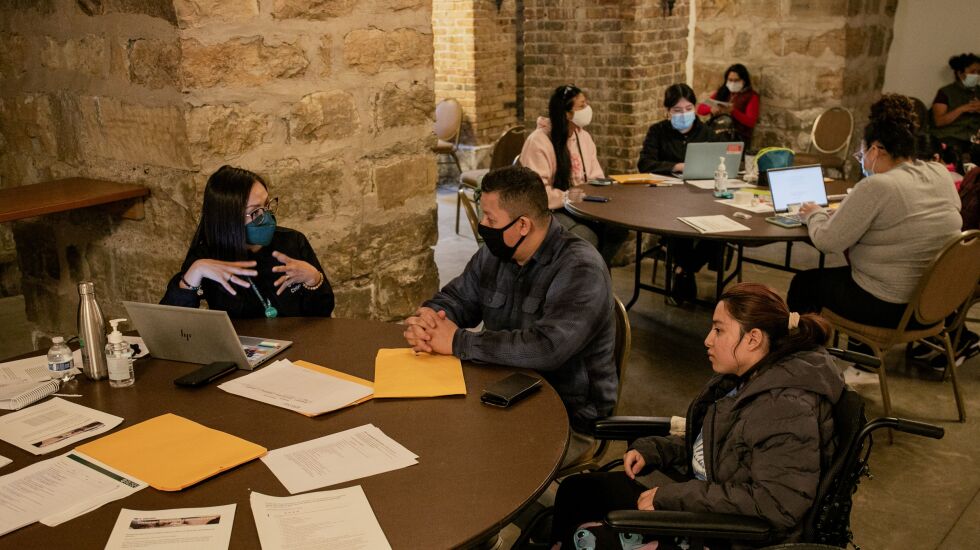
A program that provided direct cash assistance to 5,000 Chicago residents in the aftermath of the coronavirus pandemic could return to City Hall.
In recent remarks to reporters, Mayor Brandon Johnson said he would like to bring back a version of the Chicago Resilient Communities Pilot, though he did not provide figures for how much it would cost or how the program would work.
Johnson’s office did not respond to requests for additional comment, but he told Crain’s Chicago that the program could come back as soon as next year if he could find funding for it.
During Thursday’s City Council budget hearing, Department of Family and Support Services Commissioner Brandie Knazze touted the pilot as one of the department’s accomplishments.
“The preliminary results are showing that cash assistance can have long-lasting impact on the recipients in ways that can’t be achieved with other sources of public aid,” Knazze said to City Council members. “Recipients indicated that they spent their money on paying bills, paying down medical debt, purchasing groceries, and that cash had a positive impact on their mental health.”
The pilot was funded with federal coronavirus pandemic relief funds, and it provided 5,000 residents with $500 for a year with no strings attached.
But Knazze and aldermen did not further discuss the future of the program during the lengthy hearing.
Johnson’s administration has been responsive to conversations regarding the future of a guaranteed income program, said Ameya Pawar, senior adviser for the Economic Security Project, which has advocated for similar programs. He said the organization has been in touch with City Hall about turning the pilot into a permanent program, and they feel optimistic about those conversations.
“Guaranteed income fits squarely into the mayor’s thinking and vision around addressing root causes” of poverty, Pawar said. He added that Johnson’s administration is working through the numbers of the possible program.
The University of Chicago is studying the pilot, and earlier published research looked at the level of mental health stresses of applicants before receiving the funds.
Misuzu Schexnider, program director at the university’s Inclusive Economy Lab, said they are still gathering and analyzing data from the pilot, with impact findings likely not ready to be published until 2025.
“The interest in guaranteed income and the impacts of this pilot are definitely exciting,” Schexnider said. “We want to be able to deliver on that so we are working pretty aggressively on making sure that we can study those impacts.”







